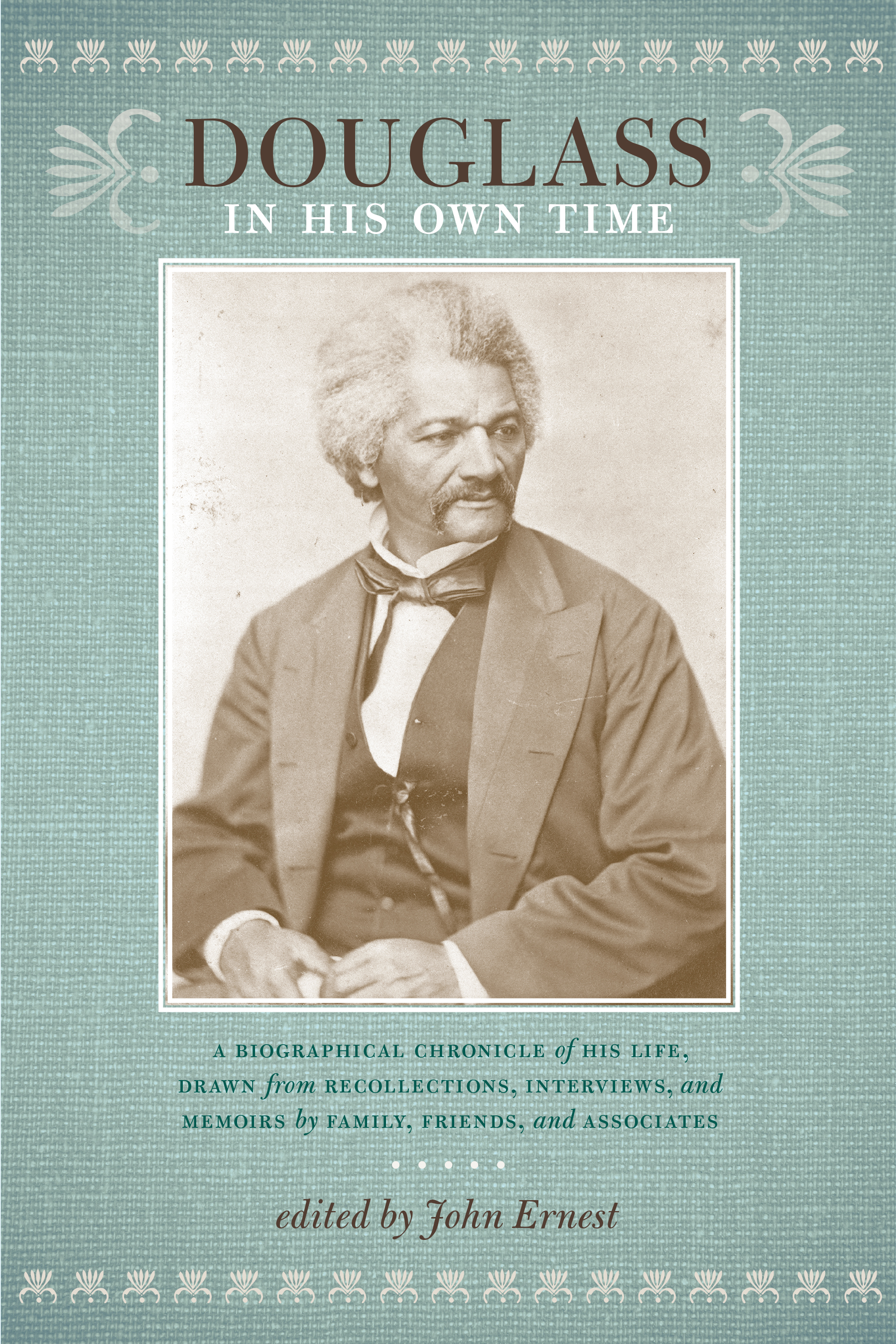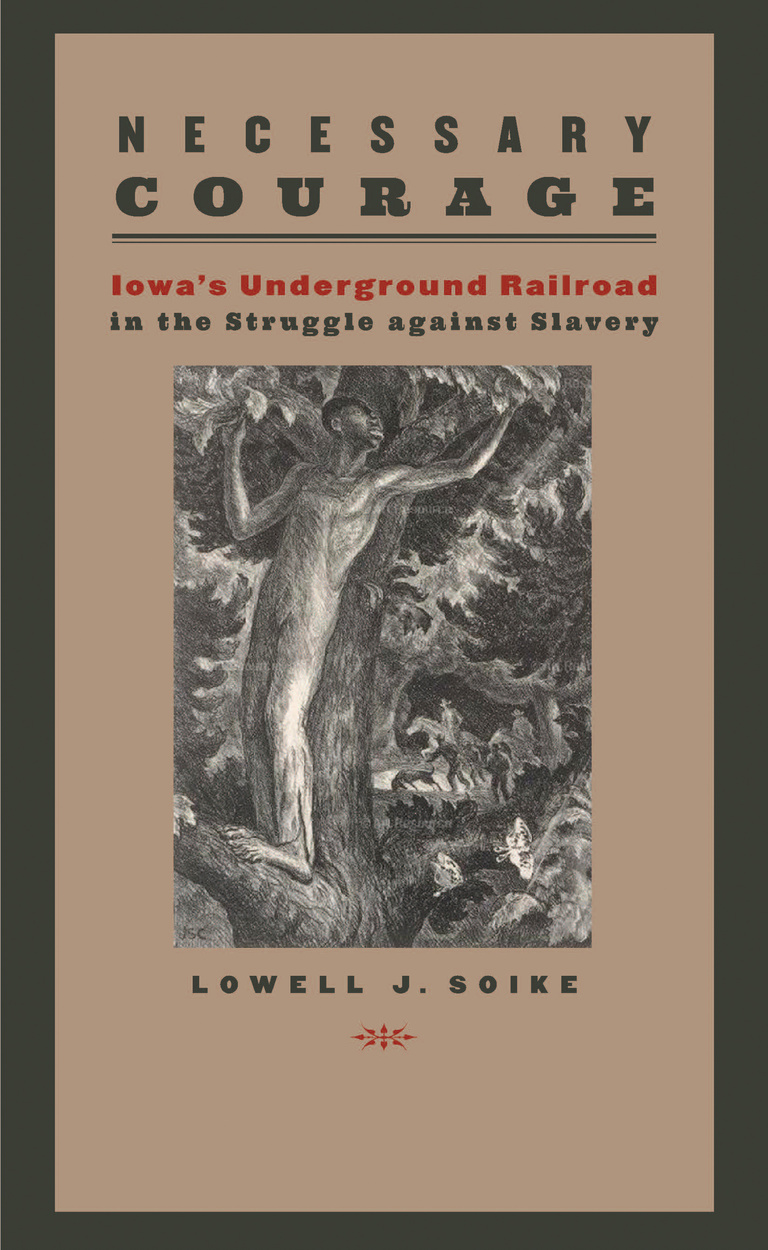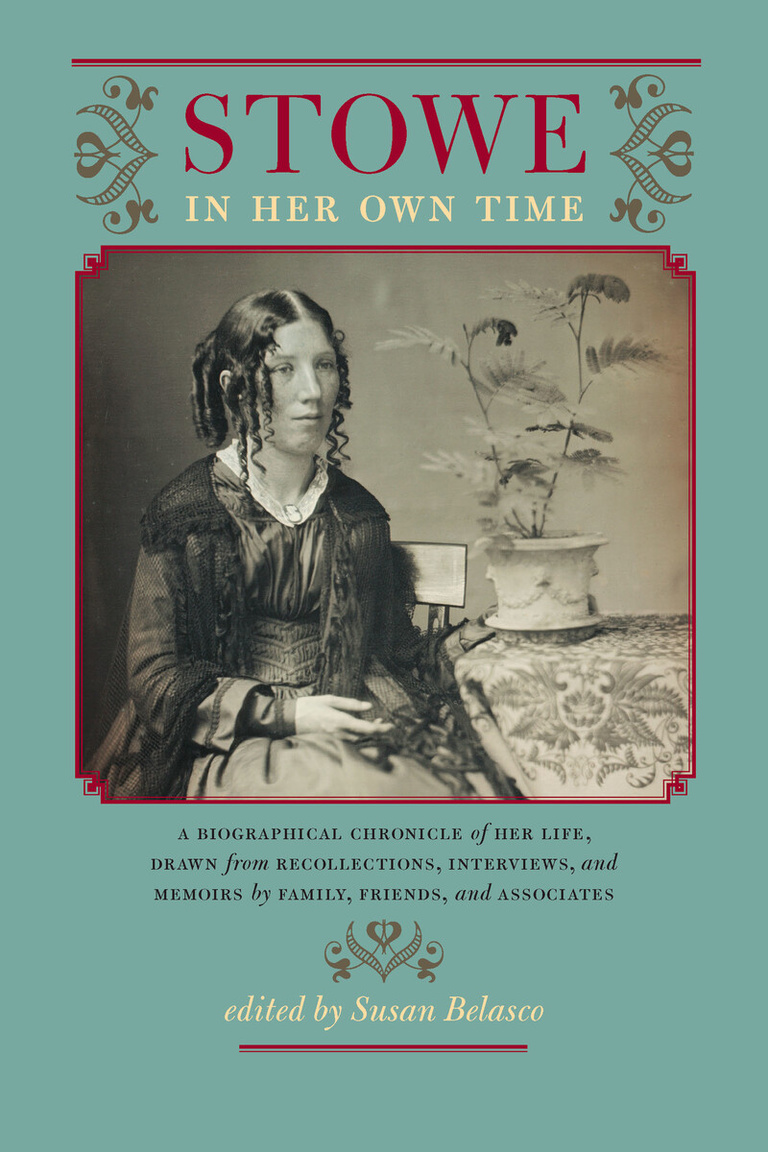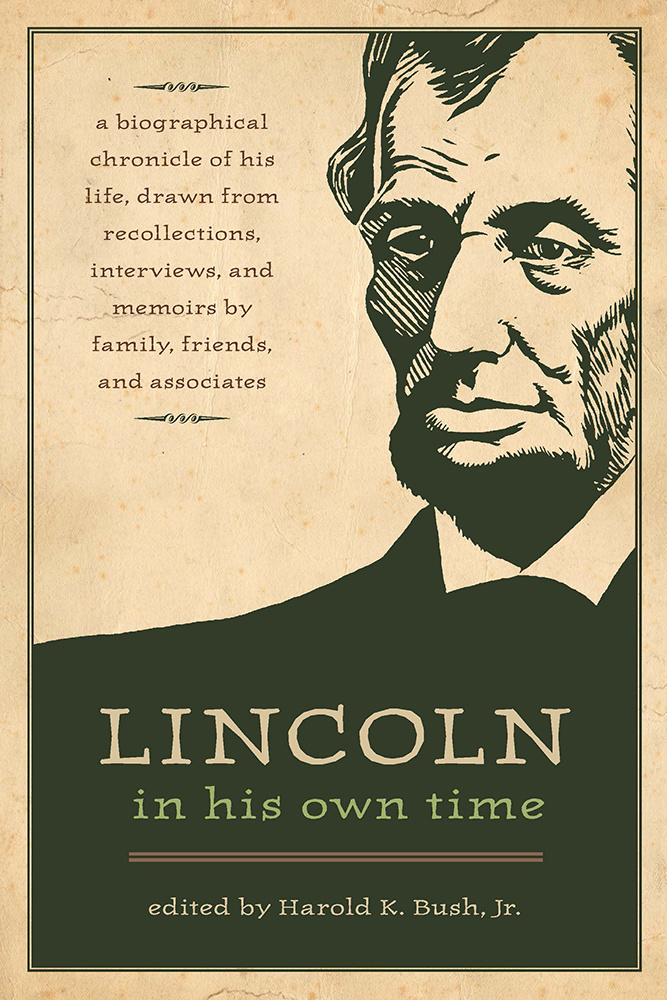One of the most incredible stories in American history is that of Frederick Douglass, the man who escaped from slavery and rose to become one of the most celebrated and eloquent orators, writers, and public figures in the world. He first committed his story to writing in his 1845 autobiography Narrative of the Life of Frederick Douglass, an American Slave. Over the course of his life, he would expand on his story considerably, writing two other autobiographies, My Bondage and My Freedom and Life and Times of Frederick Douglass, as well as innumerable newspaper articles and editorials and orations.
“In Douglass in His Own Time, John Ernest has compiled a rich resource of documents that reveal the abolitionist’s life and ideas as well as his place in public memory. The collection is extraordinarily wide-ranging, including contemporary correspondence by and about Douglass, reminiscences, poetry, tributes, and critiques well into the early twentieth century. Especially valuable are Ernest’s selections on religion and on controversies in Douglass’s personal and public life.”—David W. Blight, author, Race and Reunion: The Civil War in American Memory
“How well I remember this flutter our suburban and aspiring neighborhood was thrown into when, some time in 1847, soon after Frederick Douglass came to Rochester to live, it was known that he had bought a house on our street—and a very good house, too—and was about to move his family into the same! . . . Naturally, there was open protest. . . . One of the first things he did after settling in [the house], and making a private study of a hall bedroom on the upper floor, was to write a letter to his old master, Thomas Auld, in which he said: 'So far as my domestic affairs are considered, I can boast of as comfortable a dwelling as your own.' [. . .] Frederick Douglass was highly esteemed by his neighbors, and most popular with the children. When the boys stole his apples he made them ashamed, and they became his loyal admirers forever after. If he knew that a group of children were gathered before his window on a warm summer night when he was singing to his violin, he was sure to give them what he knew they were waiting for—‘Nelly Was a Lady’ or ‘Old Kentucky Home’—coming to the door and bowing his acknowledgment of their hearty applause.”—Jane Marsh Parker, “Reminiscences of Frederick Douglass,” Outlook 51.14 (April 6, 1895), 552–553.



